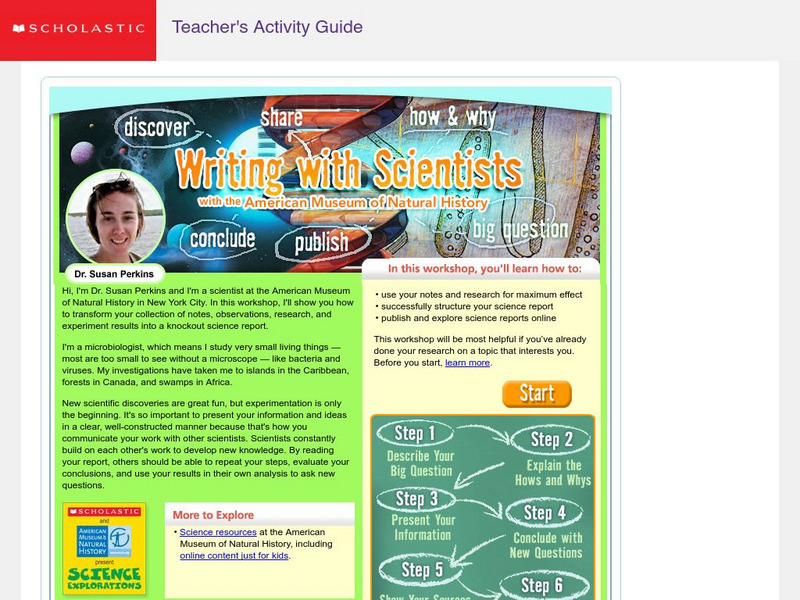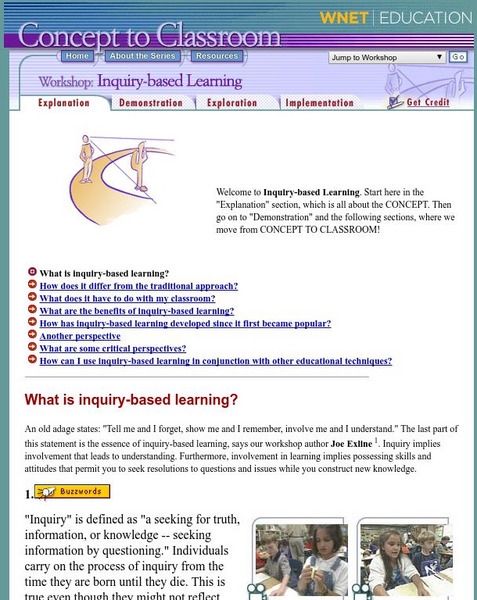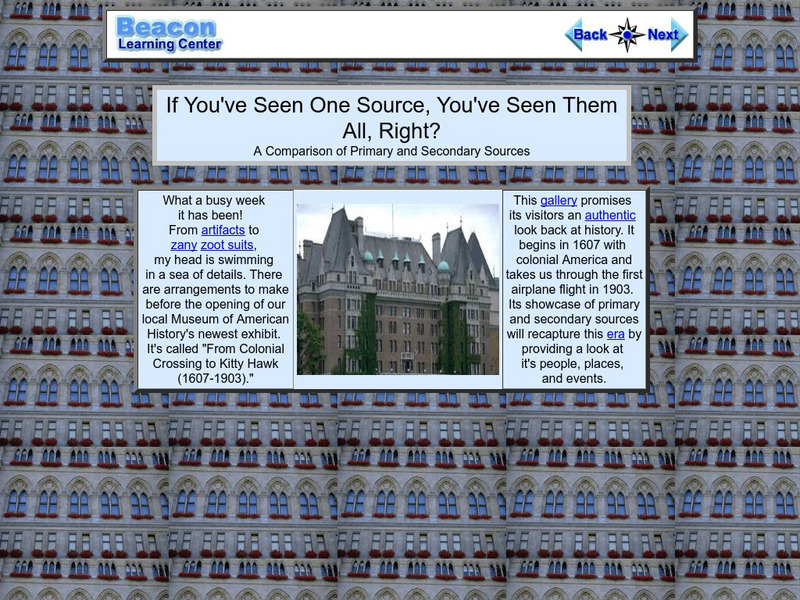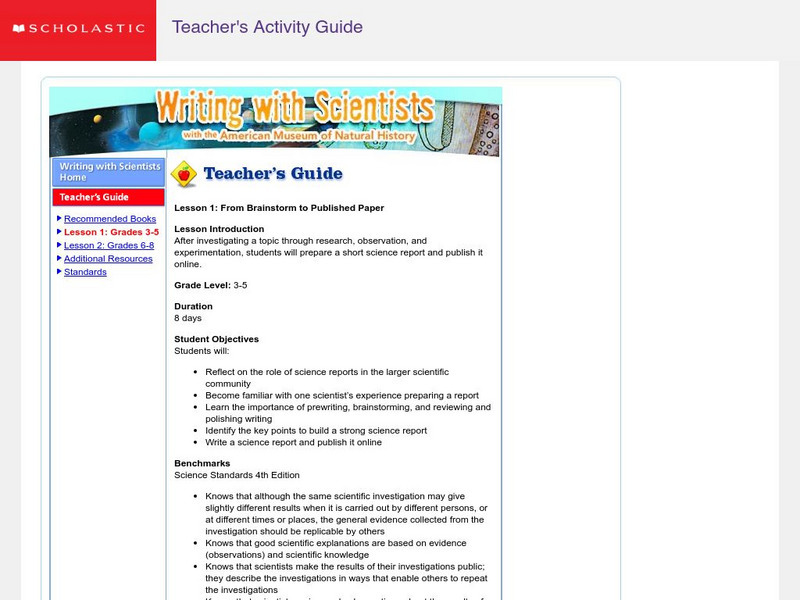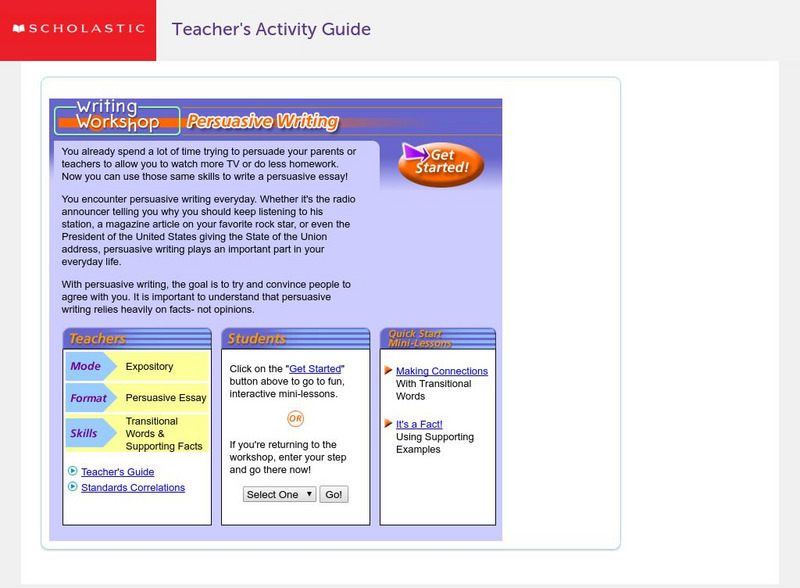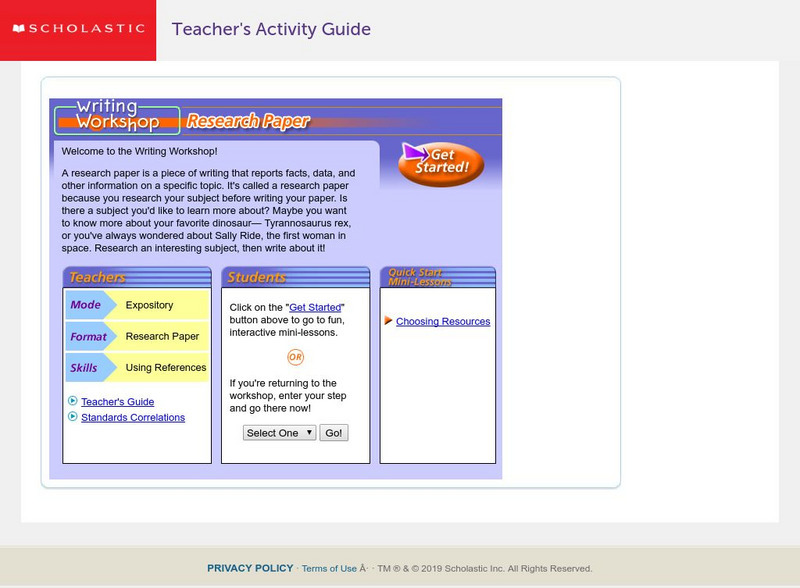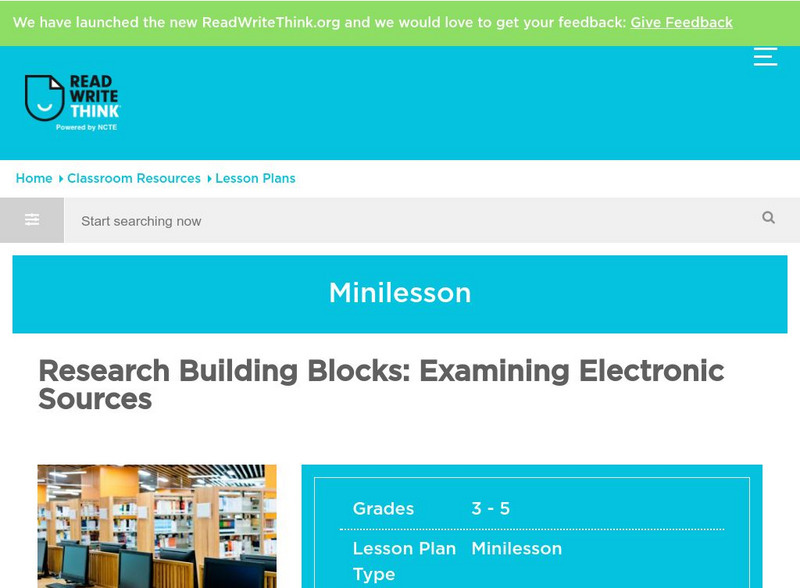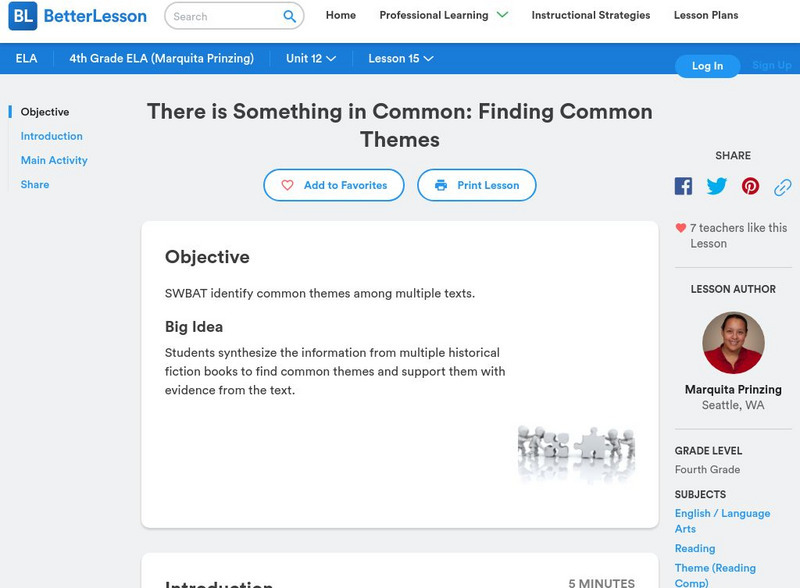Scholastic
Scholastic: Writing With Scientists With the American Museum of Natural History
Follow this six-step method and you'll have a good understanding of what a good scientific research paper involves and how it is organized. There are plenty of samples for you to look at. This explanation is also very helpful for...
PBS
Wnet: Thirteen: Concept to Classroom: Inquiry Based Learning
One of eleven workshops presented by Concept to Classroom, this workshop on Inquiry-based Learning takes you through four major steps (explanation, demonstration, exploration, and implementation) to learn about it, then put it into...
Beacon Learning Center
Beacon Learning Center: If You've Seen One Source, You've Seen Them All. Right?
This is a tutorial teaching the difference between primary and secondary research sources. It provides specific examples and asks students to answer questions along the way. Java is required.
Scholastic
Scholastic: Writing With Scientists
After students investigate a topic through research, hypothesizing, observing, and experimentating, teachers can use this lesson to help their students prepare short science reports and publish them online. The Writing with Scientists...
Scholastic
Scholastic: Writing Workshop: Persuasive Writing
This site has a great unit that leads students all the way through the writing process while composing a persuasive paper. Includes a teacher guide, mini-lessons, assessment rubric, and worksheets to help out at each step of the way.
Beacon Learning Center
Beacon Learning Center: Information Elimination: Lesson on Narrowing the Topic
This is a tutorial which focuses on how to narrow the topic for expository writing, how to determine what information to keep or eliminate, and what questions to ask yourself. Students respond to questions throughout. A comparison is...
Beacon Learning Center
Beacon Learning Center: Bibliography Blunders
This tutorial focuses on how to complete a bibliography using MLA style. It gives specific directions and examples for various types of entries such as magazines, books, encyclopedias, and web pages. It also gives specifics for the...
Scholastic
Scholastic: Writing Workshop: Research Paper
A site for both students and teachers to explore the writing of a research paper. Find teacher resources, student interactive mini-lessons, and a review of types of research resources.
ReadWriteThink
Read Write Think: Research Building Blocks: Examining Electronic Sources
This lesson helps elementary students identify the important components of web site evaluation. It includes a website evaluation question sheet.
TeachEngineering
Teach Engineering: Couch Potato or Inertia Victim?
Students design a simple behavioral survey, and learn basic protocol for primary research, survey design and report writing. Note: The literacy activities for the Mechanics unit are based on physical themes that have broad application to...
Sophia Learning
Sophia: Developing Research Questions: Focus Your Research
This tutorial focuses on why it is important to have a question in mind before beginning research; how to pick a research question based on personal interests or finding gaps; and choosing a topic that is interesting, researchable,...
Texas Education Agency
Texas Gateway: Write an Expository And/or Procedural Text
[Accessible by TX Educators. Free Registration/Login Required] You will learn how to write an expository/procedural text that synthesizes ideas from several sources.
Better Lesson
Better Lesson: There Is Something in Common: Finding Common Themes
Students will synthesize information from multiple historical fiction books to find common themes and support them with evidence from the text. Working with a partner who has read a different book, they will share their theme from their...
FNO Press
Fno.org: Inspired Investigations
An article at From Now On about how to help students do better research by changing the focus of research assignments and teaching students to ask essential questions. Some suggestions include using mind mapping, and using Inspiration to...
Scholastic
Scholastic History Mystery
Students will choose from a variety of concepts and can play a game to enhance their learning.
SUNY Empire State College
Empire State College: The Research Paper in Progress
Follow a student reasearch paper from prewriting to drafting to final copy, and read the student tutor's comments along the way. This site provides links through several successive pages.
Writing Fix
Writing Fix: The Wacky "I Will Not" Chalkboard
Inspired by Barry Lane's book 51 Wacky We-Search Reports, this cross-curricular lesson involves having students Learn how to summarize correctly with this cross-curricular writing assignment and prompt.
Writing Fix
Writing Fix: The Wacky "Box of Rocks" Assignment
Inspired by Barry Lane's book 51 Wacky We-Search Reports, in this cross-curricular lesson, learners learn how to summarize properly.
Writing Fix
Writing Fix: The Wacky Smear Campaign
Inspired by Barry Lane's book 51 Wacky We-Search Reports, in this cross-curricular lesson students learn how to summarize properly.
Writing Fix
Writing Fix: Who Doesn't Want to Be a Millionaire
Inspired by Barry Lane's book 51 Wacky We-Search Reports, in this cross-curricular lesson learners learn how to summarize properly.
Writing Fix
Writing Fix: The Wacky Classroom Calendar
Inspired by Barry Lane's book 51 Wacky We-Search Reports, in this cross-curricular lesson students learn how to summarize properly.
Writing Fix
Writing Fix: The Wacky Advertisement (With Disclaimer) Activity
Inspired by Barry Lane's book 51 Wacky We-Search Reports, in this cross-curricular lesson students learn how to summarize properly.
Writing Fix
Writing Fix: Writing Scientific "Recipes"
Adapted from a lesson in the book 51 Wacky We-Search Reports by Barry Lane, this lesson asks students to read several recipes to gain an understanding of how they are written and the types of words they use. Then students demonstrate...
Polk Brothers Foundation Center for Urban Education at DePaul University
Depaul University: Center for Urban Education: K Plus [Pdf]
Students can use this information to collect facts about a topic. Students will collect information but record the "gold standard" of facts only.


